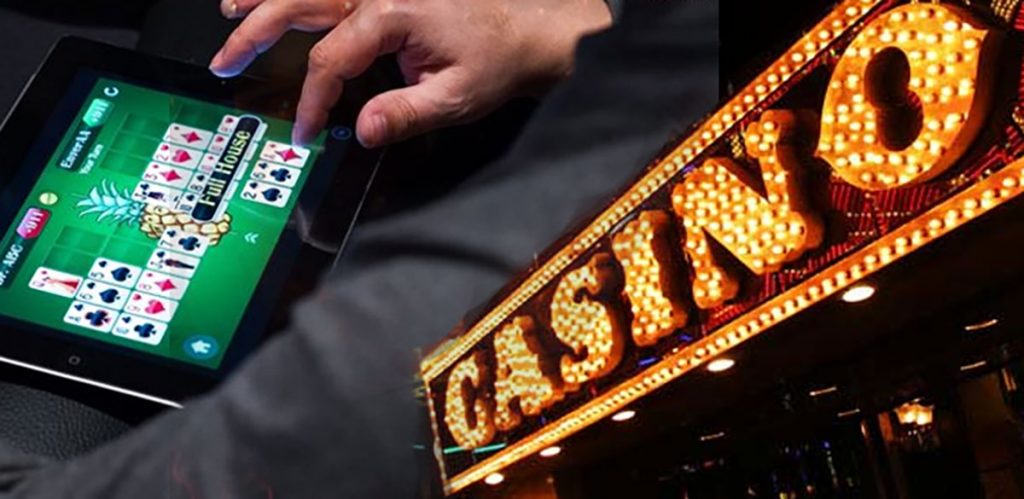Why You Should Play Games Online
Instead of at a Brick-and-Mortar
Casino
The Internet has changed so many industries that we take them for granted today.
The gambling industry has grown to be a multi-billion dollar business, with scores of
online casino operators providing entertainment to users all over the world. One of
the main reasons for this explosive growth is convenience 996MMC. Because of this, many
people prefer to play online games from the comfort of their own home. However,
this convenience comes with its own disadvantages. Here are some of the reasons
why you should play games online instead of at a brick-and-mortar casino.

Legalization
The legalization of gambling online has sparked controversy among many people.
Some argue that gambling is harmless enough to be viewed as an innocent pastime,
while others say it is harmful and leads to a host of negative consequences.
However, a recent survey of gambling practices in France found that 1.3 percent of
the population experienced some form of gambling problem. There are several
associations between gambling and poor school performance, family conflict, and
criminal behavior.
In a recent decision, the Department of Justice changed its interpretation of the Wire
Act, and now views sports betting as legal. However, a growing number of states
have legalized gambling. In order to prevent these types of illegal activity, state and
federal laws interact and are interpreted differently. Online casinos, for example, are
not subject to federal law. Currently, New Jersey, Nevada, Pennsylvania, Michigan,
and Delaware have legalized online poker. More states are likely to follow suit, and
more players are likely to flock to these online venues.
Regulation
The rise of gambling on the Internet has created new challenges for governments.
These include the need to monitor online gambling activities and the issue of
problem gambling. While it is difficult to eliminate gambling completely, a proactive
approach may minimize harm. There are several steps a government can take to
ensure a safe environment, such as prohibiting credit betting, imposing expenditure
thresholds and self-exclusion mechanisms, and examining unusual spending
patterns. Many of these measures can help limit harm and are more effective than a
ban.
Effective regulation of gambling on the Internet is necessary to substantially limit
harm and to maximize benefits for consumers, the gambling industry, and the IT
industry. However, this approach cannot prevent online gambling entirely, as it can
lead to new criminal opportunities. The ALP recommends that existing regulatory
requirements for land-based gambling facilities be extended to online gambling
facilities. In addition, existing gambling regulations should be maintained. Further,
effective regulation will ensure that consumers and operators are protected.

Impact on problem gamblers
Although the study results are interesting, they do not clearly indicate whether
Internet-based gambling increases the risk of developing problem gambling. This
may be due to the fact that problem gamblers typically engage in multiple gambling
activities, and a focus on the frequency of online gambling could lead to misleading
interpretations. In the Australian national telephone survey, problem gamblers
indicated that they had problems before they began using online gambling.
However, a larger proportion of problem gamblers than those enrolled in land-based
venues indicated that they first developed gambling problems after introducing
online gambling.
Despite these limitations, the study offers valuable insights into the cognitive and
behavioural processes underlying problem gambling, and can assist in developing
more effective treatment and prevention programs. The authors would like to thank
all of the participants who took part in the study. They also acknowledge the
contributions of the media and the gambling industry. While the impact of online
gambling is not measurable, it is still an important step in preventing problem
gambling and helping individuals overcome their addiction.
